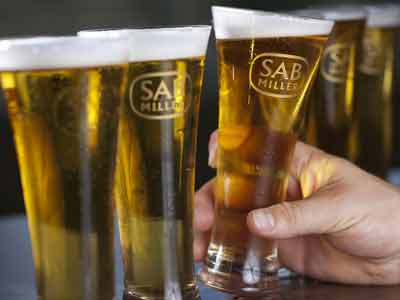-
Tips for becoming a good boxer - November 6, 2020
-
7 expert tips for making your hens night a memorable one - November 6, 2020
-
5 reasons to host your Christmas party on a cruise boat - November 6, 2020
-
What to do when you’re charged with a crime - November 6, 2020
-
Should you get one or multiple dogs? Here’s all you need to know - November 3, 2020
-
A Guide: How to Build Your Very Own Magic Mirror - February 14, 2019
-
Our Top Inspirational Baseball Stars - November 24, 2018
-
Five Tech Tools That Will Help You Turn Your Blog into a Business - November 24, 2018
-
How to Indulge on Vacation without Expanding Your Waist - November 9, 2018
-
5 Strategies for Businesses to Appeal to Today’s Increasingly Mobile-Crazed Customers - November 9, 2018
The biggest beer merger in history is under discussion as Budweiser’s owner
Anheuser-Busch InBev, the world’s largest beer maker, is looking to acquire rival SAB Miller.
Advertisement
London-based SABMiller is one of the top five global brewing companies, making more than 200 beers including Miller Lite and and Pilsner Urquell.
The global beer market is dominated by a handful of brewers increasingly moving into new markets as they look to shrug off weakness in North America and Europe where consumers increasingly choose craft beers made by independent players or wine or spirits.
Earlier, SABMiller announced it was informed that AB InBev was planning to make an official bid, but that there were no details as of yet. “They have always delivered on their promises and if this deal goes ahead, it would be good for both the companies”, Ronny Claeys, senior strategist at KBC Asset Management, said.
The merger would also give both giants more resources in tackling the growing beer markets outside the USA, including A-B InBev’s push in Latin America and SABMiller’s hold on Africa.
With no proposal yet received by SABMiller, which previous year had a bid for Heineken rebuffed, there is no certainty that an offer will be made.
A series of deals over the past decade has transformed AB InBev and SAB into the world’s two biggest brewers.
Paul Gatza, director of the Brewers Association, which represents the craft beer industry, said he had concerns about how the potential deal might affect distribution networks in the U.S. But he said that many craft brewers would ultimately see it as “not relevant” to their businesses.
That value soared Wednesday, with SABMiller’s share price closing up nearly 20 percent to 3,614 pence in London trading.
Across in Brussels, AB InBev’s share price leapt 8.63 percent to 102.60 euros.
“AB InBev’s goal will be to work with SABMiller’s Board toward a recommended trade”, said AB InBev in a statement. Anheuser-Busch now has until 5 p.m. on October 14 to make an offer or walk away under United Kingdom rules. American regulators won’t look kindly on the country’s three largest beer brands-Bud, Coors, and Miller-being owned by the same company.
The marketer of Budweiser, Skol, Corona and Stella Artois, which generated $47B in 2014 revenues, warned that it’s uncertain of its takeover success.
To what degree will this giant merger and other deals, some of which may impact beer drinkers’ relationships to specific brewers, impact perceptions of beer to where it becomes less of an item of personal passion or more of an item of personal passion?
Advertisement
“Anytime you have the No. 1 and No. 2 merging, it’s going to be looked at closely”, said Erik Gordon, a professor at the University of Michigan’s Ross School of Business who studies antitrust issues.




























